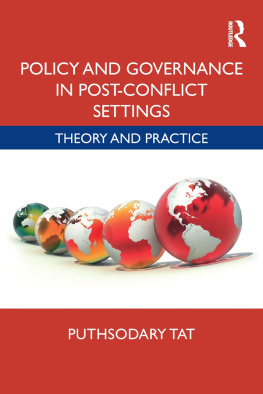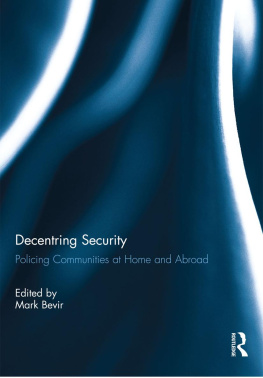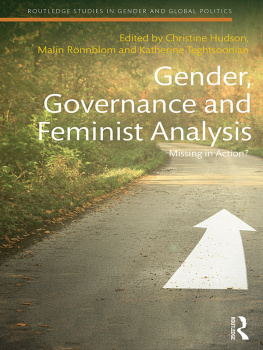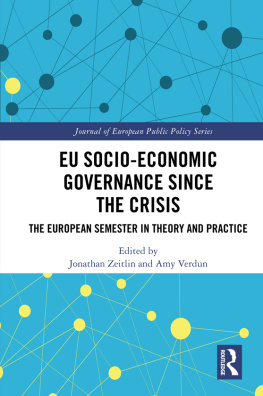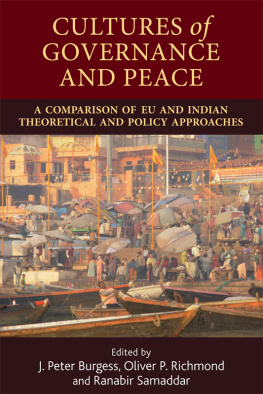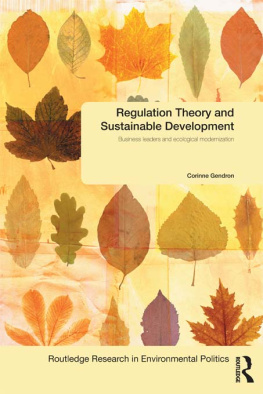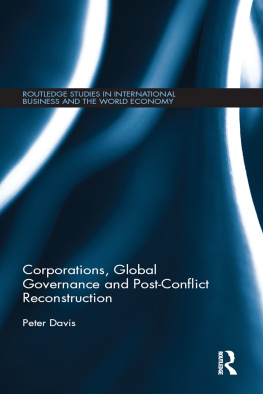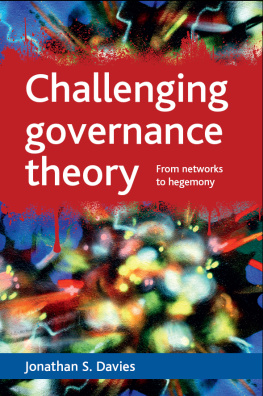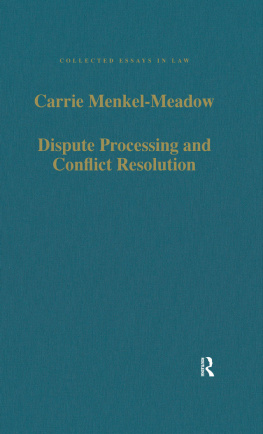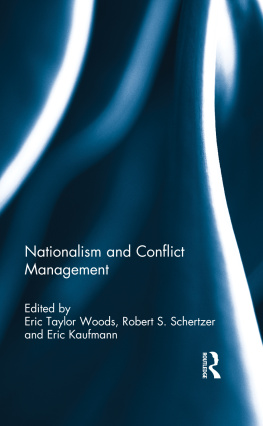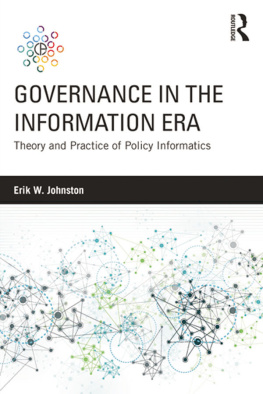Policy and Governance in Post-Conflict Settings
Post-conflict societies are commonly constructed as weak, fragile, and failed states. Economic recovery, risks of renewed violent conflict, natural resource degradation, and poverty alleviation become prioritized agendas of donor countries and international institutions. Billions of dollars on development policy and governance reform have been invested. However, misapplication, ineffectiveness, and foreign aid dependency have become a controversial debate on whose policy, whose governance, and whose outcomes.
To understand the problems, the author employs a blend of social constructionism and discourse theory to establish a platform for understanding and discussing hegemonic aid conditionality on recipient governments. The theories also help analyze how the meanings of post-conflict governance are socially, economically, and politically constructed and used in state building, state apparatuses, institutional building, and policy-making process. He reveals that the philosophical and theoretical knowledge that underlies the interface between the mode of governance and policy design create the consensus of values, norms and indicators between experts, public servants, donors and communities in post-conflict settings. The author also shares illuminating case studies by way of his considerable wealth of experience leading reconstructive efforts in Afghanistan and Cambodia.
Puthsodary Tat is a Senior Research Advisor at the Cambodia Development Research Institute (CDRI). He was an Assistant Professor of Public Administration at the American University of Afghanistan (AUAF). He has experience working as a director, coordinator, team leader and consultant with the United Nations, local and international NGOs, and government ministries in Cambodia.
Policy and Governance in Post-Conflict Settings
Theory and Practice
Puthsodary Tat
First published 2020
by Routledge
52 Vanderbilt Avenue, New York, NY 10017
and by Routledge
2 Park Square, Milton Park, Abingdon, Oxon, OX14 4RN
Routledge is an imprint of the Taylor & Francis Group, an informa business
2020 Taylor & Francis
The right of Puthsodary Tat to be identified as author of this work has been asserted by him in accordance with sections 77 and 78 of the Copyright, Designs and Patents Act 1988.
All rights reserved. No part of this book may be reprinted or reproduced or utilised in any form or by any electronic, mechanical, or other means, now known or hereafter invented, including photocopying and recording, or in any information storage or retrieval system, without permission in writing from the publishers.
Trademark notice: Product or corporate names may be trademarks or registered trademarks, and are used only for identification and explanation without intent to infringe.
Library of Congress Cataloging-in-Publication Data
Names: Tat, Puthsodary, author.
Title: Policy and governance in post-conflict settings : theory and practice / Puthsodary Tat.
Description: New York, NY : Routledge 2019. | Includes bibliographical references and index. | Summary: Post-conflict countries typically have failing infrastructure, personnel shortages, and budget deficits. They often run the risk of relapse into violence, population conflicts, bureaucratic chaos and corruption, broken economic stature, and limited access to goods. This book provides a historical and theoretical framework for understanding post-conflict governance. It covers governance lifecycles as well as tools for the everyday work of project managers in these regions. The author also shares his experience leading reconstructive efforts in Afghanistan and CambodiaProvided by publisher.
Identifiers: LCCN 2019011599 | ISBN 9781482248548 (hardback) | ISBN 9780429299131 (ebook)
Subjects: LCSH: Peace-building. | Nation-building. | Postwar reconstruction.
Classification: LCC JZ5538 .T37 2019 | DDC 327.1/72dc23
LC record available at https://lccn.loc.gov/2019011599
ISBN: 978-1-4822-4854-8 (hbk)
ISBN: 978-0-429-29913-1 (ebk)
Typeset in Bembo
by Apex CoVantage, LLC
Contents
PART I
Introduction
PART II
Ideology and Global Peace
PART III
Key Tenets of Neoliberal Peace and Policy Agendas
I would like to acknowledge the following people for their contributions, comments and advice.
I would like to express my special thanks to Dr. Kenneth Holland, the President of the American University of Afghanistan (AUAF), Dr. Jefferey Belnap, Provost, and Dr. Andrew Starcher, Dean of Faculty, who provided a strong support for this research. Sincere thanks to Mr. David Seney, Chair Pro Tempore of the Board of Trustee, and Paul Revere, who assisted and supported my research following the university suspension due to the terrorist attack on AUAF in August 2016.
Thank you to Dr. Michael Barry, University Professor, who gave a mentoring session. Also, I express my thanks to Dr. John Wall and Dr. Christine Murray. who edited and made some comments on the introduction section.
To My Family
I would like to express my sincere thanks to my wife, Rany Pheng, and lovely daughters, Evadarita Tat and Daniya Tat, who always motivate and inspire me in hard circumstances.
Memory allows us to look back on our behaviors and experience, to select those that seem to hang together in some narrative framework, literally the story of your life, and to look for patterns, repetitions and so on that provide us with the impression of continuity and coherence.
(Burr 2015, 162)
My personal narrative began with early experiences that were marked by feelings of insecurity, fear and danger. My home is in Cambodia, a country torn apart by civil war for over 20 years. During that time, I witnessed Khmer Rouge genocide, torture and starvation perpetrated on the people of the country. The experience left the population feeling traumatized, fearful and powerless. During the conflict, more than 1.5 million people were killed, including my own father. After the collapse of the Khmer Rouge and during the 1980s, Cambodia remained an unstable and volatile society shrouded by the effects of civil war.
After the 1991 Paris Peace Accord, the nation managed to avoid a renewed risk of violence and maintained a fragile state of peace for over three decades from 1993. In recent years, however, and since 2017, current political crises have weakened democracy following allegations that members of the opposition were plotting a revolution and were charged with treason and color revolution. Cambodias democratic-leaning party (the opposition party) was eventually dissolved on 16 November 2017. The European Community, the United States and other Western donors have argued that these actions may lead to the death of democracy in Cambodia. Anti-democracy, outright dictatorship and human rights violations are on the agendas of foreign donors and their decision to impose sanctions. Recent books, such as Cambodias Curse: The Modern History of a Troubled Land by Joel Brinkley (2011) Hun Sens Cambodia by Strangio Sebastian (2014) and the recent political crises appear to reflect Cambodias past history and offer a complex mosaic to ponder upon regarding a long-lasting peace in Cambodia.


